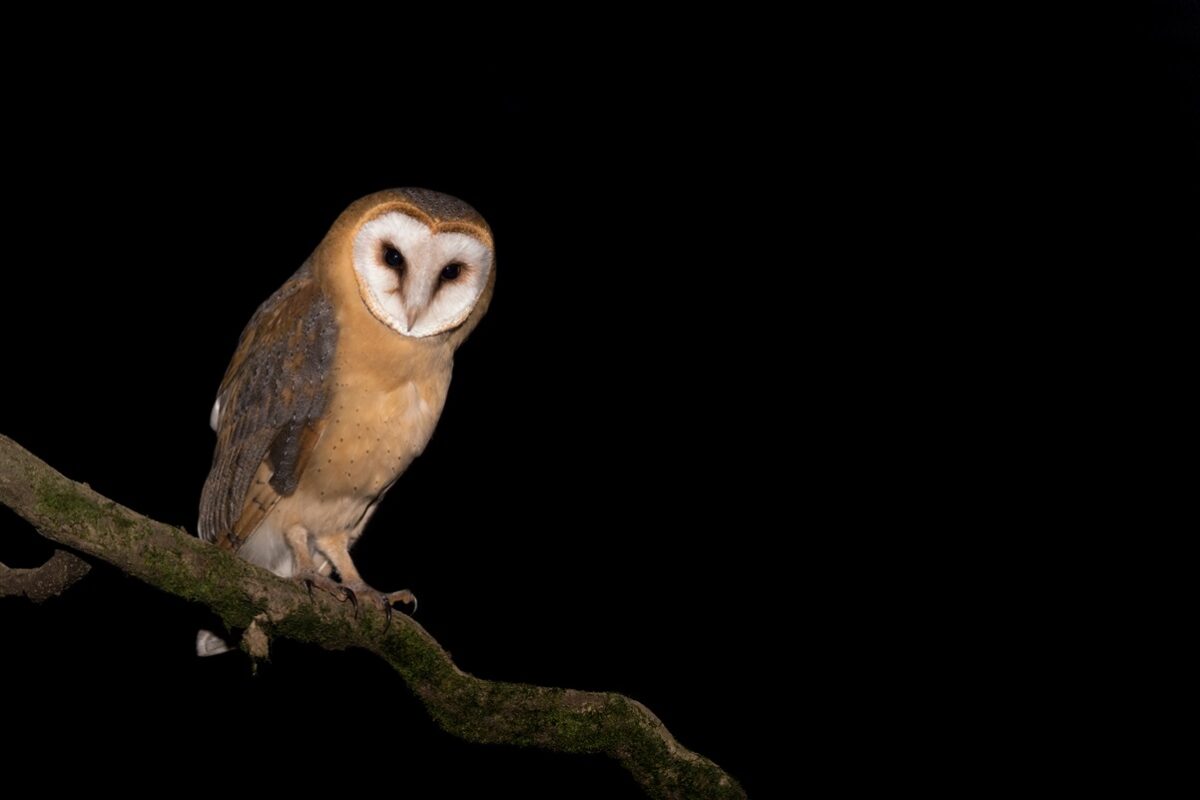Hearing a bird’s chirping sound at night can be a pleasant experience – that is, if they don’t stop you from getting your night’s sleep! But why do they chirp at night? Is it normal behavior, or is it a sign of distress?
Nocturnal birds are active at night, so it’s natural for them to produce various vocalizations after dusk. Some diurnal species sing at night if they feel threatened. Moreover, several species that forage during the day are known to be vocal only during the night.
Indeed, all these details can be slightly confusing, but there’s no need to worry! We’ve explained everything in detail below. You’ll also find some possible spiritual meanings to this nocturnal behavior of some birds, so keep reading!
Why Do Birds Chirp At Night?
The chirping sounds birds produce at night are connected to the species’ lifestyle. As you probably already know, some birds are diurnal, meaning they’re active during the day, while others are nocturnal, being active during the night.
As such, if you ever hear a bird chirping at night, it’s most likely (but not exclusively) a nocturnal species.
Like diurnal birds, nocturnal species have various reasons for chirping. Here are some:
- seeking mates
- claiming territory
- communicating with their peers
- signaling danger
- signaling food sources
- expressing disorientation
In short, this is normal behavior and equals the daytime chirping produced by diurnal birds.
Nevertheless, you may hear some diurnal birds chirp at night as well. If they feel threatened, they won’t just go on with their sleeping schedule.
They’ll express danger by producing various sounds, maybe trying to alert other birds, and they may flee their sleeping grounds.
You may also hear baby birds chirping at night, either of nocturnal or diurnal species.
Another interesting thing to mention is that some diurnal species are quite silent during the day and become vocal during the night.

What Birds Chirp At Night?
Check out some of the most common birds you may hear chirping at night.
Eastern Whip-Poor-Will
Eastern whip-poor-wills are medium-sized nightjars endemic to North America. They’re found in deciduous or mixed woodlands. These birds are active during the night when they are hunting for insects typically caught in flight.
These birds sleep during the day unless threatened and forage at night. If you live in areas that serve as habitats for eastern whip-poor-wills, you may hear them chirping after dusk. However, you probably won’t be able to see them, as they’re excellent at camouflaging!
Common Loon
The Common Loon is one of the most renowned species in the Loon family. Although Common Loons are generally regarded as diurnal creatures, they are often heard producing sounds at night.
Some Common Loon vocalizations heard at night include the wail, tremolo, and yodel calls.
The yodel call is produced only by males either to establish territorial boundaries or during territorial confrontations.
The wail is similar to a wolf’s howl and is often produced to announce each other’s location.
The tremolo signals alarm and distress.
Naturally, the wail, for example, is rather a howl than a chirping, but other vocalizations Common Loons produce may indeed sound like chirping from afar.
Eastern Screech Owls
While mostly known for the terrifying hooting sound they produce, owls can, in fact, emit a wide variety of sounds, including chirping. Take Eastern screech owls, for example. They are often heard calling at night, and many of their calls sound like chirping sounds from afar.
Eastern screech owls are found in Eastern North America, their range extending from Canada to Mexico. So if you live within their natural range, you can rest assured that at least one of the sounds you hear at night is produced by an eastern screech owl!
Black-crowned Night Heron
The black-crowned night heron is a medium-sized heron species in the Ardeidae family. It can be found in Europe, the Americas, and Asia.
As their common name suggests, these birds are primarily nocturnal, so they’re quite often heard producing sounds at night. During the day, they remain silent in trees and bushes.
Common Nightingales
Common nightingales have quite a unique singing behavior, as their sounds are heard both during the day and during the night.
However, only unpaired males emit vocalizations during the night. Their nocturnal songs aim at attracting mates. The word goes that male common nightingales stop singing at night once they find a partner.
Other theories suggest that nocturnal songs are also supposed to serve as territorial defense, although these sounds are heard mostly at dawn.
Common nightingales are known to sing much more loudly in urban areas to cover other noises!
Killdeer
Killdeer plovers are quite common in the Americas. They are primarily nocturnal and forage during the night when insects are abundant and predators are scarce.
These birds are highly vocal and are often heard at night, although the vocalizations they produce sound rather like screeching than chirping.
Black Rail
Black rails are part of the Rallidae family of birds. They are found in North and South America.
Although they’re primarily diurnal, foraging mostly during the day, black rails are quite vocal at night, especially in the first two weeks of May when the breeding season is at its peak!
Birds Chirping At Night: Spiritual Meaning
It’s well-known that birds are often regarded as spirit guides, and their movements and behaviors are linked to various spiritual signs. The chirping sounds produced at night are no exception.
People often regard these sounds as symbols for upcoming changes. Some consider them proof of divine protection or spiritual awakening.
On the other hand, other cultures say that hearing a bird chirping at night equals possible danger, especially if the singing birds don’t typically produce vocalizations at night.
Hearing a bird singing at night may also be your sign to take a break, enjoy the present moment, and observe the world around you. You may also want to reevaluate your principles, goals, passions, and dreams.
